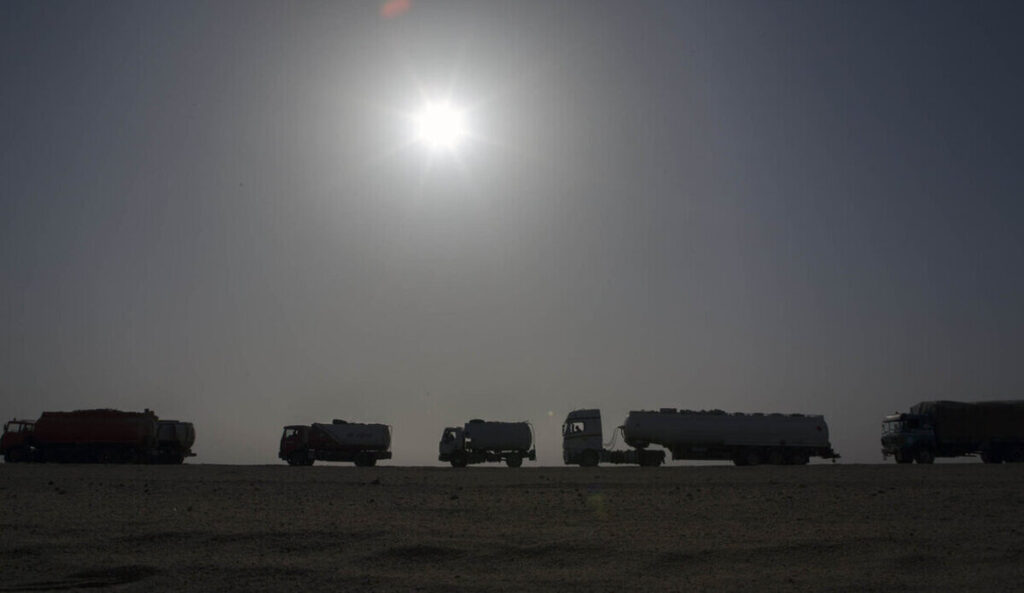ADF STAFF
The United Nations Multidimensional Integrated Stabilization Mission in Mali (MINUSMA) is working to close 12 camps and one temporary operating base and hand them over to Malian authorities by the end of the year.
MINUSMA personnel, totaling nearly 13,000, also are expected to leave the country by December 31. Civilian staffers will withdraw, and equipment, which includes about 5,500 sea containers and almost 4,000 vehicles, will be redeployed to other missions or returned to the countries that provided them.
The first phase of the drawdown, which included the closing of three camps and the temporary base, began in July. MINUSMA has been in Mali for a decade.
Although the mission is leaving, the U.N. will remain in the country through its agencies, funds and programs, El-Ghassim Wane, Mali’s special representative of the U.N. secretary-general, told the U.N. Security Council in August. Wane said the mission is helping Malian authorities prepare to take over once the withdrawal is complete.
“A lot remains to be done obviously. And the objective was to help them prepare as much as they can to take over … and continue the stabilization efforts we have been supporting for the past ten years,” Wane said in a U.N. report. He added that the mission is committed to ensuring the closest coordination possible so that its departure does not result in a security void.
Surging Violence
Mali has struggled to fight terrorism for more than a decade. The situation deteriorated in December 2021 when the country’s ruling junta hired Russia’s Wagner Group at a cost of nearly $11 million per month to provide security and training — while also exploiting gold mining.
Instead of stemming the bloodshed, Wagner seems to be causing it. Overall, 71% of Wagner’s engagement in political violence in Mali has taken the form of attacks targeting civilians, according to the Armed Conflict Location & Event Data Project.
The group has targeted civilians during attacks in the Mopti, Koulikoro, Segou and Timbuktu regions. Hundreds of civilians died in those attacks, which included the massacre of more than 500 people in Moura in the Mopti region in March 2022. The attack was perpetrated by Malian troops and Wagner.
From mid-2022 to mid-2023, violent events linked to “militant Islamist groups” rose to 1,024, up from 862 such events over the previous time frame, according to a report by the Africa Center for Strategic Studies. The violent events, launched by terrorist groups linked to al-Qaida and the Islamic State group (IS), include attacks on security forces and civilians.
“Mali is on pace to see over 1,000 violent events involving militant Islamist groups in 2023, eclipsing last year’s record levels of violence and a nearly three-fold increase from when the junta seized power in 2020,” the ACSS report said.
In the first half of 2023, there were 16 episodes of “militant Islamist violence” within 150 kilometers of Bamako, the nation’s capital, compared to five such events in the previous six months. Since 2021, violence against civilians has surged 278% with more than 1,600 recorded fatalities, the report showed.
Gunmen opened fire on a MINUSMA logistics convoy in early July. The attack in northern Mali triggered a fierce firefight during which a tanker was overturned, injuring a civilian.
IS Nearly Doubles Its Territory
IS has nearly doubled its territory in Mali in less than a year, the U.N. said in a report released in late August.
“Mali remains a hotspot for drug trafficking in West Africa and between coastal countries in the Gulf of Guinea and North Africa, in both directions,” the experts said, adding that many of the main drug dealers are reported to be based in Bamako, the national capital.
The panel said it remains particularly concerned with persistent conflict-related sexual violence in the eastern Menaka and central Mopti regions. “Especially those involving the foreign security partners of the Malian Armed Forces,” the panel said in reference to Wagner.
“The panel believes that violence against women and other forms of grave abuses of human rights and international humanitarian law are being used, specifically by the foreign security partners, to spread terror among populations,” the report said.

